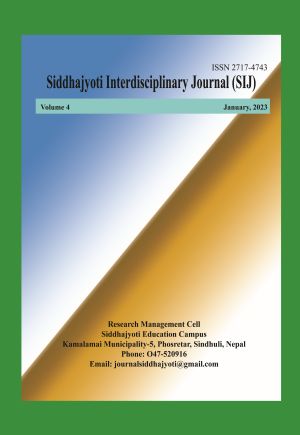Effects of the 5E Learning Model on Physics Students’ Academic Achievements
DOI:
https://doi.org/10.3126/sij.v4i1.54130Keywords:
Achievement, bachelor’s level, constructivist learning, conventional method, 5E model, physicsAbstract
This study aims to determine the effects of the 5E learning cycle model at the bachelor level physics students’ academic achievement. Null hypotheses were examined to accomplish this study. The population included all students studying science education at the bachelor’s level on Tribhuvan University’s constitutional campuses. The sample of the study consisted of sixty (60) physics students from two constitutional education campuses in Kathmandu and Bhaktapur districts, who were in their second year of bachelor’s degree. A quasi-experimental research method was adopted for this investigation. There were 30 students in each of the control and experimental groups. The instrument was validated by university professors and lecturers, and the Kuder Richardson -21 formula was used to determine the reliability coefficient which was found to be 0.78. The experimental and control groups were taught for fifteen hours on the topic “Electrostatic Force, Field, and Potential” using a learning cycle model and conventional teaching methods. The results of this investigation demonstrated that students taught using the learning cycle model were shown to be more successful learners in physics than those taught using the conventional teaching technique.
Downloads
Downloads
Published
How to Cite
Issue
Section
License
This license enables reusers to distribute, remix, adapt, and build upon the material in any medium or format for noncommercial purposes only, and only so long as attribution is given to the creator.

